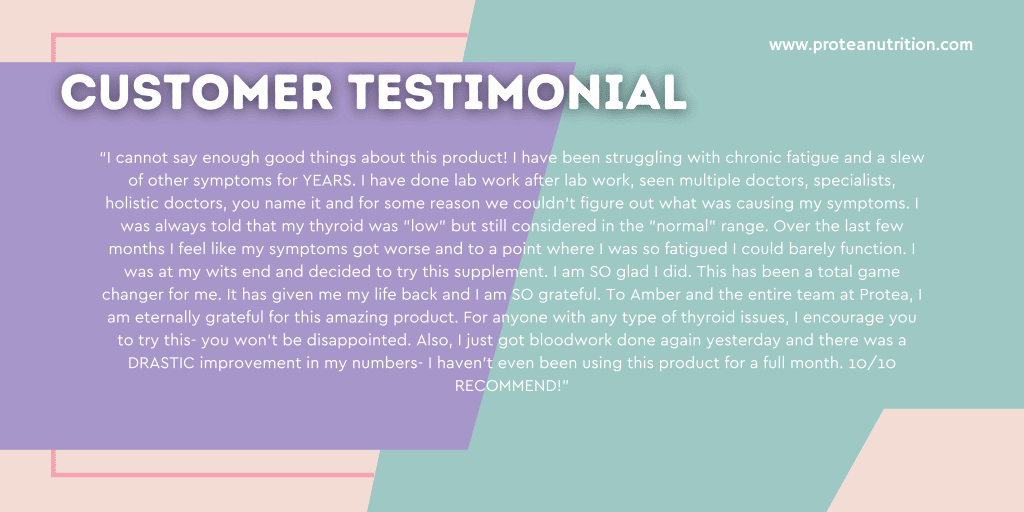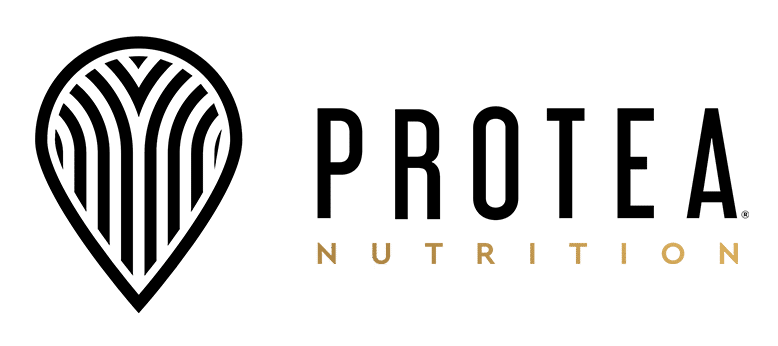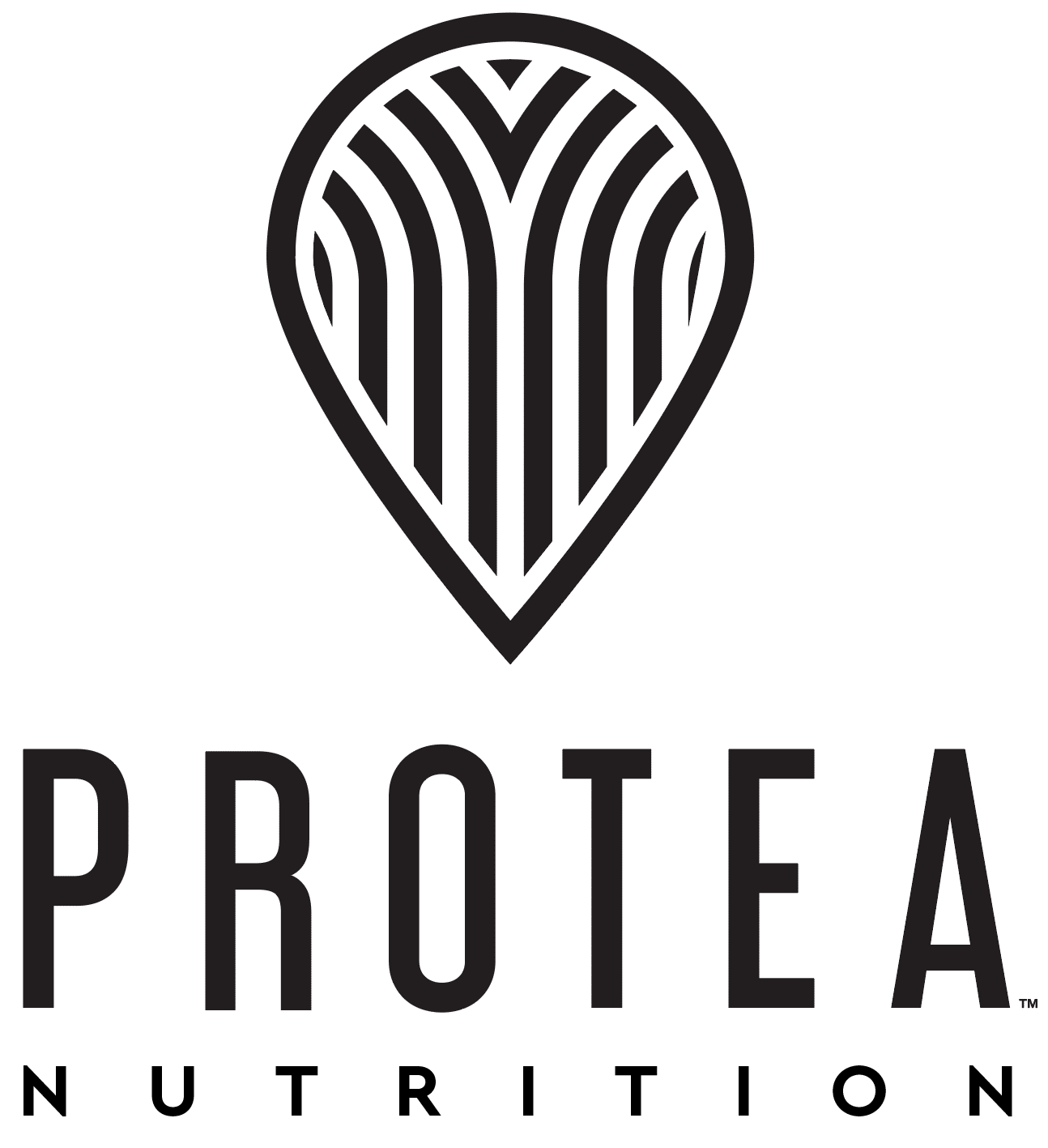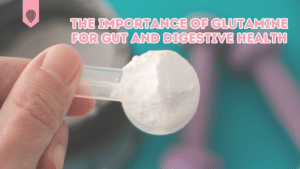The thyroid is a butterfly shaped gland of the endocrine system that produces and releases hormones in the bloodstream controlling metabolism. Iodine from the food you consume is used by the thyroid gland to create two key hormones: triiodothyronine (T3) and thyroxine (T4). TSH Releasing Hormone (TSH-RH), which is produced by the hypothalamus, alerts the pituitary to instruct the thyroid gland to generate varying levels of T3 and T4 by either increasing or lowering the production of these hormones. T3 plays a role in your metabolic rate and bone health, and it especially helps brain, heart, and digestive function. T4 contributes to body temperature, metabolism, and mood.*
When we think of “metabolism”, many people think of weight gain or weight loss dependent upon a slow or fast paced metabolism, respectively. Taking a supplement to increase thyroid levels can be tempting when the goal is weight loss. However, too much thyroid hormone can be just as problematic as too little.

Symptoms of an issue within the thyroid are tiredness, constipation, hair loss, dry skin, body temperature regulation problems, weight gain or loss, mood imbalances, and brittle nails.
Hypothyroidism (too little thyroid producing hormones) is much more common than hyperthyroidism (over production of thyroid hormone). But thyroid disease is prevalent and many affected don’t even know it. An estimated 20 million people in the United States alone are affected (1). *
Most cases of hypothyroidism are caused by the immune system attacking the thyroid gland. This damages the thyroid gland, making it difficult to produce sufficient levels of T4. The most common cause of hypothyroidism is Hashimoto’s disease, an autoimmune disease that creates antibodies that attack the cells in your thyroid (2). It’s unclear what causes Hashimoto’s but it appears to be genetic in some cases. Because of the high nutritional requirement by the thyroid, nutrient deficiencies can also lead to autoimmune responses like Hashimoto’s (3). Some deficiencies will worsen as a result of the body attacking the thyroid. Common nutrient deficiencies are selenium, zinc, iodine, iron, vitamin D and magnesium.*
Taking steps to replenish via dietary sources and/or supplementation can help strengthen the immune response to these antibodies.
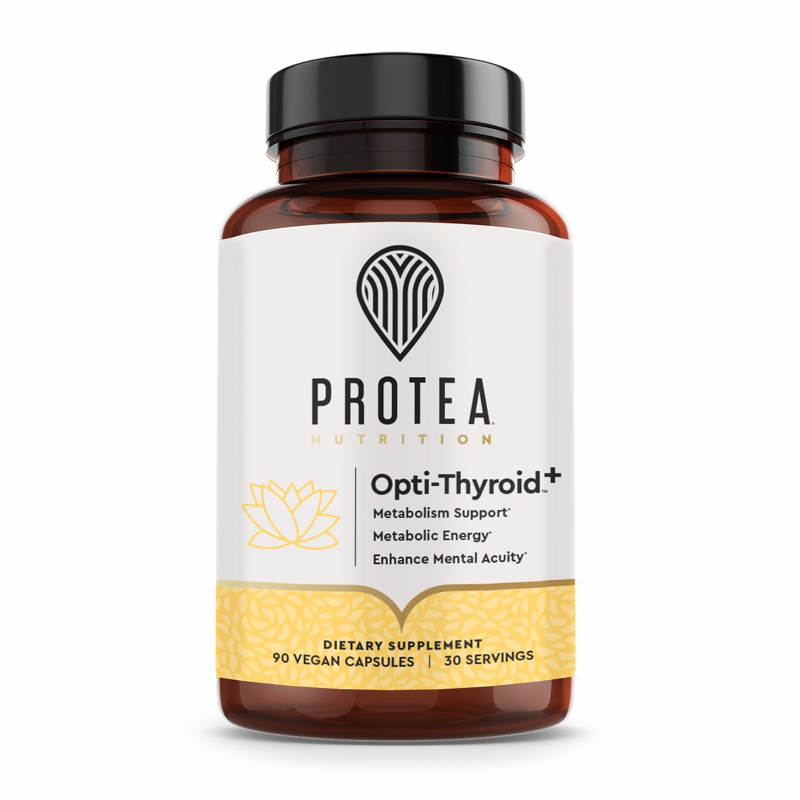
Oftentimes, hypothyroidism is treated with supplemental thyroid hormone. These man-made hormones are called l-thyroxine or levothyroxine. According to an article published in Harvard Medical School, if thyroid levels (TSH) are over 10 mIU/L, treatment on these hormones should be started immediately (4). While side effects usually reduce right away, treatment will typically need to be continued for life. If the medication is stopped, symptoms can come back (2).*
Some doctors use l-thyroxine or levothyroxine as a blanket remedy for any discrepancies in thyroid blood work. Knowing what the underlying causes of hypothyroidism are and how to support and boost thyroid levels may help you improve your symptoms and reduce the stress on your thyroid before going to lifelong medication.*
Therefore, we created Opti-Thyroid+, a dynamic formula for a healthy thyroid gland and metabolism. This unique blend optimizes thyroid secretions for an efficient metabolic response. It includes selenium, zinc, and iodine as well as l-tyrosine, which has been shown to help support T4 levels (5).*
Many people take things without testing based off symptoms and feelings. However, it’s never a bad idea to get in depth testing to make sure a supplement is the right fit for you. A doctor analysis and proper lab work is always recommended to properly diagnose hyper or hypothyroidism.*
*These statements have not been evaluated by the Food and Drug Administration. This product is not intended to diagnose, treat, cure, or prevent any disease.
